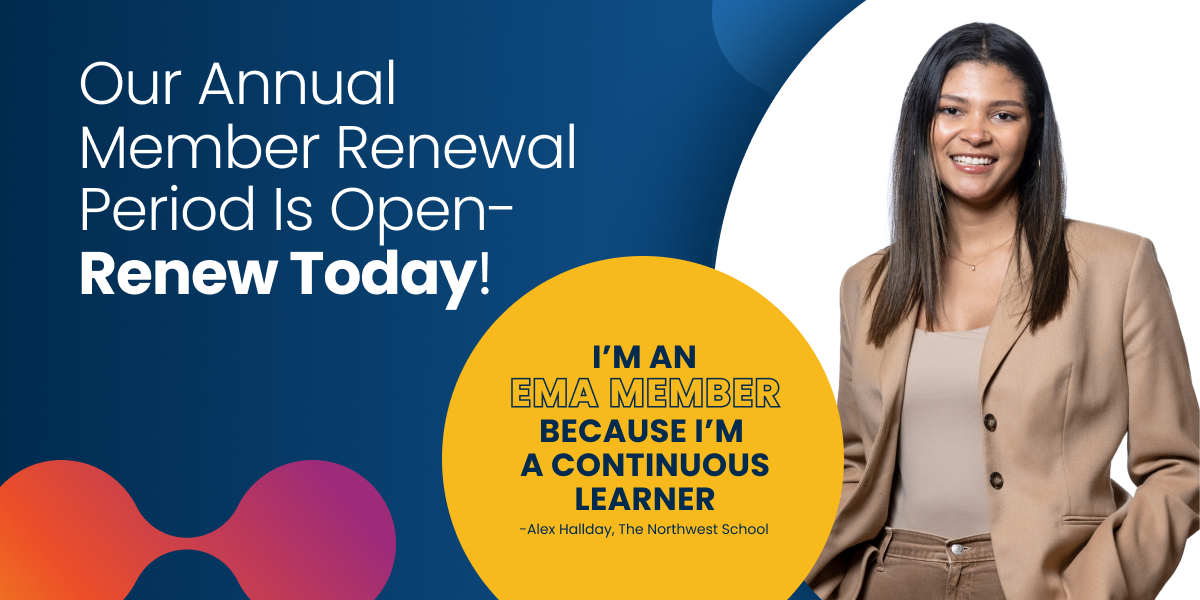Tackling Membership Interests

This year has been a continued effort to rebuild foundational services at SSATB. We have worked to update our tests to perform well for admission selection and decision making, and we have worked behind the scenes to update our business infrastructure with modern technology. Going forward, we want members to know that we remain committed to delivering improved enrollment management services.
Part of this promise involves a closer look at test security for the SSAT. After reviewing areas of potential risk, SSATB’s board of directors has determined two significant policy changes related to SSATB membership in order to manage the security of our tests.
First, SSATB has forged a partnership with IECA, the Independent Educational Consultants Association (IECA). No later than August 1, 2015, all educational consultants must become Professional Level members of IECA to maintain their SSATB membership. IECA requires that its members have the majority of their work in consulting with families, not in tutoring and “test prep” services. We believe that IECA’s principles align well with SSATB’s goal of ethical and professional work with families in the admission (and testing) process.
Second, SSATB’s board has determined that the organization will no longer allow tutor and test preparation companies to affiliate due to the inherent conflict of interest between their mission (improving test scores) and ours.
In addition to addressing issues of security, we’ve made these changes to address conversations happening in the wider society about test prep and “gaming the test.” Several months ago, I was deluged by friends seeking my reaction to a New York Times article which examined test preparation at the very earliest ages (three-year-olds) for entry into New York City's most selective schools. At the core of their inquiries was a fundamental question: Does test preparation negate a true understanding of a child’s potential for academic success?
In my opinion...No.
Let’s face it, colleagues… studying before you take a test has never been a bad idea. Indeed, the best way to prepare for the SSAT (or the ISEE, for that matter) is to familiarize yourself with the content, format, timing, and scoring of the test. That said, unrealistic expectations are often created for families when they engage in test-preparation for their children, expecting to see dramatic gains on their child’s results. This year, I have spoken to one too many upset parents who “prepped” and received some form of advance prediction about their child’s score, only to see a different score on the actual SSAT. Families, rightly, have been in touch with SSATB with concerns, but only AFTER having paid dearly, to learn the news that we are not affiliated with these test-prep companies.
So— let me be clear with all stakeholders on the matter of test prep. SSATB does not endorse nor do we participate with any outside companies in the business of prepping students for the SSAT. (This includes member schools that offer SSAT preparation classes.) Further, we’d suggest to families that they stay away from any group claiming complete knowledge of the SSAT—especially those promising guaranteed score increases through use of their prep services.
Our SSAT website contains the basic information families need to know about the SSAT. We also offer The Official Guide to the SSAT, written by members of our testing team, and designed to assist families and students who seek additional information about how our tests are developed, scored, etc. (As always, SSATB works closely with our access organization members—and even directly with families in need—to provide equitable access to testing and test information.)
The feedback we’ve already received from member school admission officers supports our board’s recent decision to make these policy changes in our membership. And of course, the test prep debate continues…
In closing, I’d like to offer this personal reflection… I do not believe that a child’s test score is the most important part of their application. My colleagues who are admission leaders agree. They use test scores to better understand each applicant in context with all other pieces of data in the student’s file. They also use test scores to understand their entire applicant pool, and to establish a baseline among all applicants (who hail from different schools and curriculum experiences).
It is useful to remember Stanford researcher Carol Dweck’s point of view as we get ready for the new academic season ahead: "'Hard working' is what gets the job done. You just see that year after year. The students who thrive are not necessarily the ones who come in with the perfect scores. It's the ones who love what they're doing and go at it vigorously.”1
Happy summer to all.
(1) Glenn, David. “Carol Dweck’s Attitude,” Chronicle.com, May 9, 2010.




